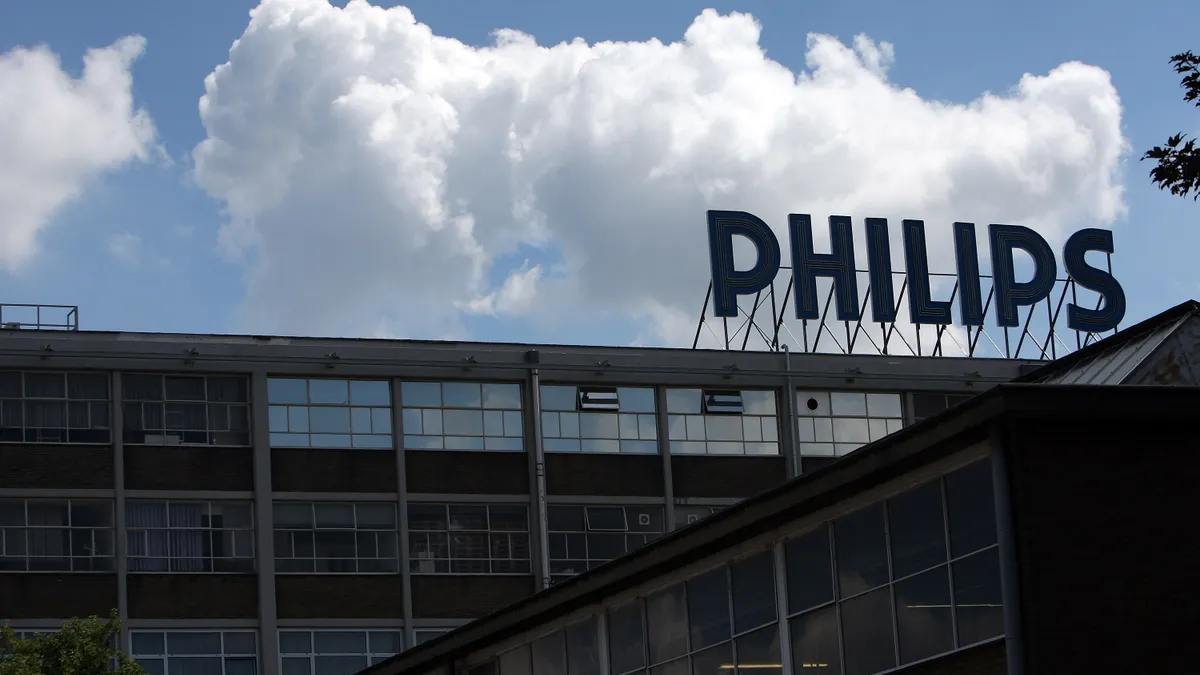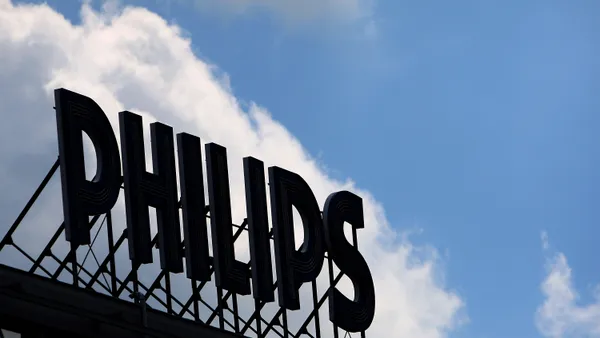Dive Brief:
- Philips recalled certain magnetic resonance imaging (MRI) systems because of the risk of machines exploding. The Food and Drug Administration labeled the action as a Class I recall.
- In November, Philips asked customers to immediately stop using the 150 Panorama 1.0T HFO systems distributed in the U.S. after learning that helium can build up and cause an explosion.
- The FDA has received one report of an explosion in the 22 years the system has been in use. There have been no reports of injuries or deaths, but the potential for harm led the agency to assign the notice to Class I.
Dive Insight:
The product correction affects imaging machines distributed in the U.S. from 2001 to 2016. Like some other MRI machines, Philips’ device uses liquid helium to cool its superconducting magnet. Helium gas can build up in the MRI machine, but as the pressure rises, the system performs a “quench” procedure. The procedure reduces the pressure by venting the gas outside the building.
However, the quench procedure, which the FDA said is “not common,” can be disrupted by the presence of a blockage in the venting system. The blockage may cause the pressure to exceed the design limits, potentially compromising the structural integrity of the system.
“The magnet in the Panorama 1.0T HFO may experience an unintended quench during normal use or when initiated in an emergency by the operator pressing the Magnet Emergency Stop button,” the FDA wrote. According to the agency, using an affected system could cause chemical exposure, lack of oxygen, tissue damage and mechanical trauma from debris, as well as damage to the device and property.
Philips has moved to mitigate the risk of harm, telling customers to stop using the MRI systems and only run a manual quench in an emergency. The company is sending field service engineers to inspect the systems and do corrective replacement or repairs, if necessary.
The product correction adds to the list of notices about Philips’ devices. Since recalling millions of sleep apnea devices and ventilators in 2021, the company has been the focus of other safety and quality alerts, including last month’s FDA notice about reports of fire, smoke and burns from users of its Dreamstation 2 continuous positive airway pressure machines.















